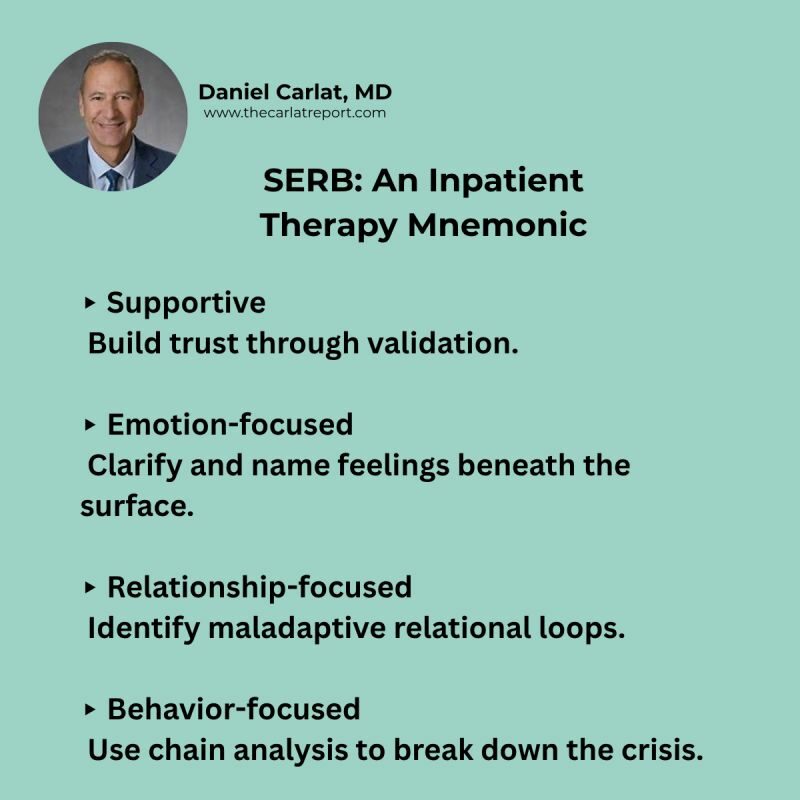When patients are acutely psychotic, manic, or suicidal, our impulse is to fine tune the meds. But a few years ago—while working primarily inpatient—I realized I was leaning too heavily on medication. My patients needed more.
Then I came across a powerful framework by Michelle Stein and Michelle Jacobo that reframed how I think about inpatient therapy. I later summarized it using the mnemonic "SERB"—Supportive, Emotion-focused, Relationship-focused, Behavior-focused—a structure that guides my therapeutic approach on the unit.
▸ Supportive: Many of my inpatients live their lives in shame. Being supportive and saying things like "You're doing great so far—you're taking your meds and going to group," gives them a surprising—and meaningful—mood boost.
▸ Emotion-focused: A patient tells you he's just “stressed.” Ask, “Could there be anger or fear under that?”—and the real work begins.
▸ Relationship-focused: After a fight with unit staff, reflect, “Does this feel familiar?”—and a long-standing pattern surfaces.
▸ Behavior-focused: A self-harm episode becomes a learning moment through chain analysis—“Let's talk about the story behind what happened, step-by-step.”
This framework helped me rediscover a deeper role in inpatient work: teaching patients to understand themselves, not just stabilize symptoms.
Takeaway:
Inpatient psychiatry isn’t just about meds—it’s a chance to model insight, emotional validation, and relational healing. Even a short stay can plant the seeds for real change.
- How do you integrate therapy into brief inpatient stays?
- Share if you're rethinking the role of psychotherapy on the unit
- Follow me (Daniel Carlat MD) for reflections on practical, patient-centered psychiatry
Reference: Stein, M. B., & Jacobo, M. C. (2013). Brief inpatient psychotherapeutic technique. Psychotherapy, 50(3), 464–468.
Join the conversation on LinkedIn with Dr. Carlat
Related Articles
- Proposed Treatment Algorithm for Postpartum Psychosis Author: Alex Evans, PharmD, MBA
- How Long Should We Continue Esketamine? Author: Steven Hamilton, PhD, MD
- Factitious Disorder: Navigating the Challenges of Deceptive Illnesses Authors: Jonathan Heinzman, MD, and Michael A. Strong, MD, MSEd


_-The-Breakthrough-Antipsychotic-That-Could-Change-Everything.jpg?1729528747)



